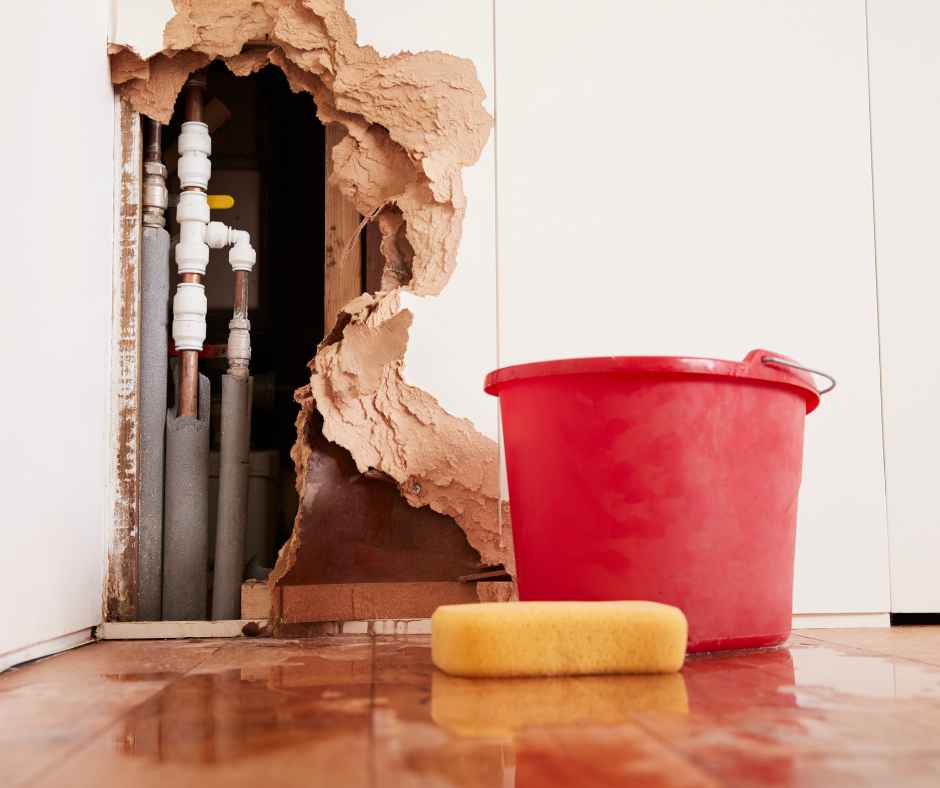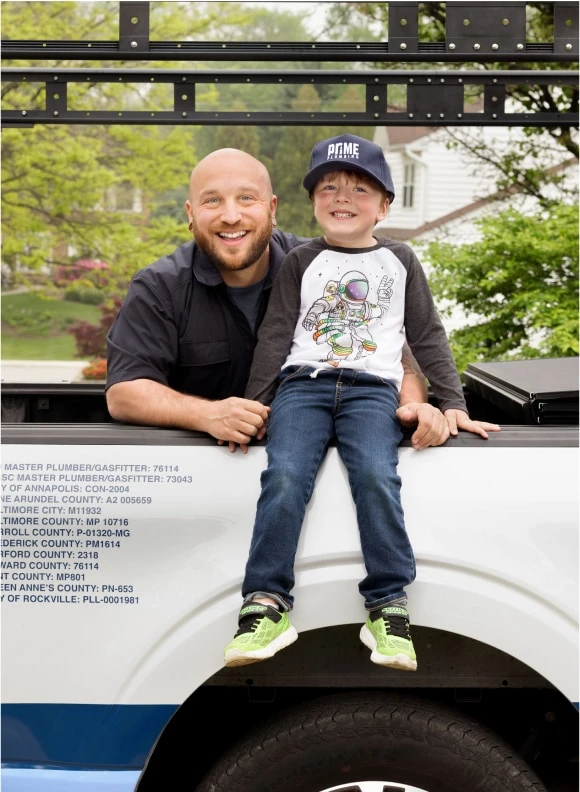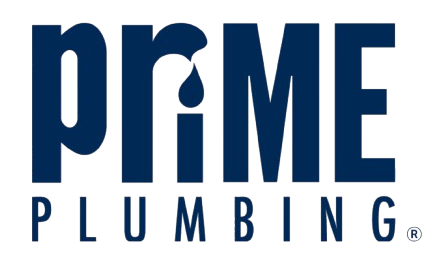Service 7 Days a Week

Proudly Serving Central Maryland
Emergency Plumbing Checklist: What to Do Before the Plumber Arrives

Save Time, Call Prime!
Plumbing emergencies never happen when it’s convenient. Whether it’s a burst pipe or a suddenly overflowing toilet, these situations can quickly cause significant damage to your home. In the chaos, many homeowners feel overwhelmed and unsure of what steps to take while waiting for help. But acting quickly—even before your plumber arrives—can make all the difference in minimizing water damage and repair costs. Knowing what to do in the first few minutes of a plumbing emergency helps protect your home, your belongings, and your wallet.
In this blog, we’ll walk you through a clear emergency plumbing checklist so you’re ready to act fast and limit the damage when disaster strikes.
Why Acting Fast Matters During a Plumbing Emergency
Plumbing emergencies escalate much faster than most homeowners realize. A burst pipe can release gallons of water every minute, and an overflowing toilet can flood your bathroom in seconds. Without immediate action, even a minor leak can cause widespread damage to floors, walls, and personal belongings.
Water damage doesn’t just ruin surfaces—it promotes mold growth, weakens structural supports, and creates costly long-term problems if not addressed right away. Since most plumbing is hidden behind walls or under floors, issues often worsen silently before visible signs appear. That’s why knowing how to respond quickly is critical.
Every second counts in a plumbing emergency. Acting fast doesn’t just protect your home—it can reduce your repair bills significantly. By following a clear emergency plumbing checklist, you can minimize the damage while waiting for professional help to arrive.
Emergency Plumbing Checklist to Minimize Damage
When a plumbing emergency strikes, knowing exactly what to do can prevent serious water damage and reduce the cost of repairs. Follow this step-by-step checklist to protect your home while waiting for your plumber to arrive.
1. Shut Off the Water Supply Immediately
The first priority in any plumbing emergency is to stop the flow of water.
- Locate and turn off the main water valve if the leak or burst pipe is large or widespread.
- Use localized shut-off valves for smaller emergencies, such as an overflowing toilet or under-sink leak.
Knowing where your shut-off valves are ahead of time can save you valuable minutes when disaster strikes.
2. Turn Off Your Water Heater (If Needed)
For major leaks or when the main water supply is shut off:
- Turn off your water heater to prevent damage or overheating.
- For electric heaters, switch it off at the circuit breaker.
- For gas heaters, turn the gas supply valve to the “off” position.
This step helps prevent heat buildup and protects your equipment.
3. Drain Faucets to Relieve Pressure
After shutting off the main water supply:
- Open cold water taps throughout your home to drain remaining water and relieve pressure.
- If safe, flush toilets once to empty tanks.
Opening faucets reduces pressure on leaking pipes, helping to slow or stop leaks.
4. Contain the Leak or Flooding
While waiting for the plumber:
- Use towels, buckets, or pans to catch dripping water.
- Block doorways or other areas with towels to stop water from spreading.
- Divert water away from wood floors, electronics, or personal belongings when possible.
Containing water helps minimize damage and cleanup later.
5. Check for Electrical Risks
Water and electricity are a dangerous combination.
- If water is near outlets, switches, or appliances, avoid contact.
- Shut off power to affected areas if safe to do so.
- Never walk through standing water where electricity may be present.
Always prioritize your safety over stopping the leak.
6. Document the Damage
Before cleanup begins:
- Take photos or videos of the affected areas and any visible damage.
- These images can help with insurance claims and ensure repairs address all issues.
Proper documentation can save you hassle during the claims and repair process.
What NOT to Do During a Plumbing Emergency
In the middle of a plumbing crisis, it’s easy to make mistakes that can worsen the damage or risk your safety. Avoid these common missteps when handling a plumbing emergency:
- Don’t Ignore Small Leaks: Even minor drips can quickly escalate into major problems. Always act promptly.
- Don’t Use Electrical Appliances Near Water: Water exposure increases the risk of electrocution. Keep devices and cords far from flooded areas.
- Don’t Attempt Complex Repairs Without Experience: Trying to fix major leaks, burst pipes, or sewer backups without proper tools and training can worsen the situation.
- Don’t Forget to Shut Off Water: Failing to shut off the main water valve allows water to continue flowing, increasing damage every second.
- Don’t Overuse Chemical Drain Cleaners: In emergencies, avoid pouring harsh chemicals into pipes. These can corrode plumbing and complicate repairs.
- Don’t Delay Calling a Professional: Waiting too long before contacting a plumber often leads to higher repair costs and more extensive damage.
In a plumbing emergency, it’s just as important to know what not to do as it is to know the correct steps to take. Following safe practices protects your home and ensures the problem doesn’t get worse.
When to Call an Emergency Plumber and Why It Matters
Some plumbing issues can wait, but true emergencies require immediate professional attention. Knowing when to call for help can save your home from severe damage and unnecessary repair costs.
Plumbing Problems That Require Emergency Service
Contact a licensed emergency plumber immediately if you experience any of the following:
- Burst Pipes: Water pouring into your home from a broken pipe can cause thousands in damage within minutes.
- Sewer Backups: Raw sewage in your home is a serious health hazard that requires immediate professional intervention.
- Major Leaks: If shutting off local valves doesn’t stop water flow, or if a leak floods large areas, emergency service is needed.
- Water Heater Failure or Leaks: Leaking water heaters can lead to extensive flooding and water damage.
- Overflowing Toilets That Won’t Stop: When a toilet continues overflowing after shut-off attempts, call for help immediately.
If you’re unsure whether your situation qualifies as an emergency, it’s better to err on the side of caution and contact a professional plumber for guidance.
Why Hiring a Professional Plumber is Critical
In emergency situations, professional plumbers bring expertise, tools, and speed that homeowners can’t match. Attempting major repairs yourself could result in:
- Further damage to your home’s plumbing
- Dangerous water contamination
- Electrical hazards from improper handling
A licensed plumber can diagnose the problem accurately, make safe and lasting repairs, and protect your home from further harm. Though professional service comes with a cost, it often saves homeowners thousands by preventing additional damage.
Prevent Future Plumbing Emergencies With These Tips
While not every plumbing emergency can be avoided, many common issues can be prevented with regular maintenance and smart home habits. Protect your home by following these proactive tips:
- Schedule Annual Plumbing Inspections: A yearly checkup from a professional plumber can catch small issues before they escalate into emergencies.
- Know Where Your Shut-Off Valves Are: Familiarize yourself with the locations of your main and localized water shut-off valves so you can act quickly during an emergency.
- Watch for Signs of Leaks or Clogs: Keep an eye on water pressure, drain speeds, and moisture around pipes. Address small problems early to avoid major repairs.
- Maintain Your Water Heater: Flush your water heater annually and check for signs of rust, corrosion, or leaks to prevent failure.
- Insulate Pipes in Winter: Protect exposed pipes from freezing with proper insulation to reduce the risk of bursts during colder months.
- Avoid Pouring Grease or Food Down Drains: These materials can cause blockages that lead to backups or burst pipes.
- Consider a Plumbing Maintenance Plan: Many professional plumbers offer service memberships that include regular inspections and discounted repairs, providing peace of mind and saving money over time.
Staying proactive helps minimize the chances of facing an unexpected plumbing emergency and protects your home from water damage year-round.
Conclusion: Be Ready for Plumbing Emergencies and Protect Your Home
Plumbing emergencies can happen without warning, but knowing what to do before your plumber arrives makes a significant difference. Acting quickly to shut off water, contain leaks, and prevent electrical hazards can protect your home from serious water damage and expensive repairs. Remember, small mistakes—like delaying action or attempting risky DIY fixes—can lead to bigger problems.
While preventive maintenance reduces the risk of emergencies, it’s also crucial to recognize when professional help is necessary. For serious issues like burst pipes or sewer backups, always rely on a licensed plumber to resolve the problem safely and effectively.
Need fast, reliable help? Contact Prime Plumbing for emergency plumbing services and expert repairs when you need them most.
The Difference With Prime
Get a FREE second opinion on water and sewer service, and septic repair/replacements!
Don’t Just Take Our Word for it

Why Choose Prime Plumbing?
Professional Services at an Affordable Price
- Transparent Pricing
- No Additional Charges for Overtime
- Flexible Financing Solutions
- Thorough Employee Background Checks
- Complimentary Second Opinions

